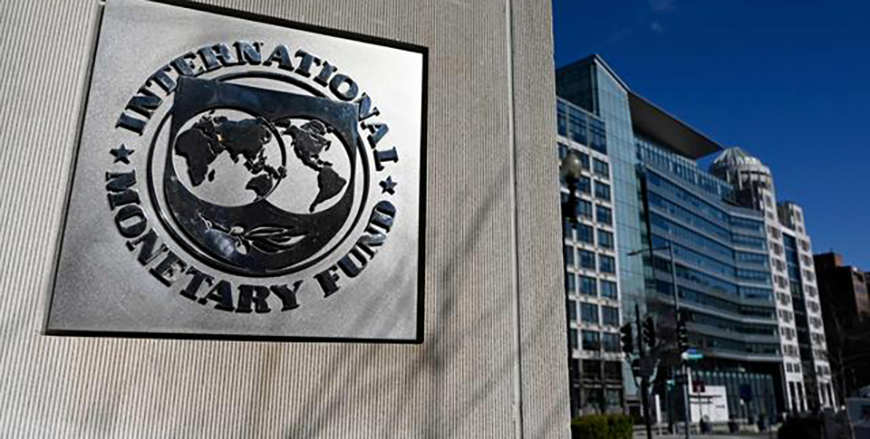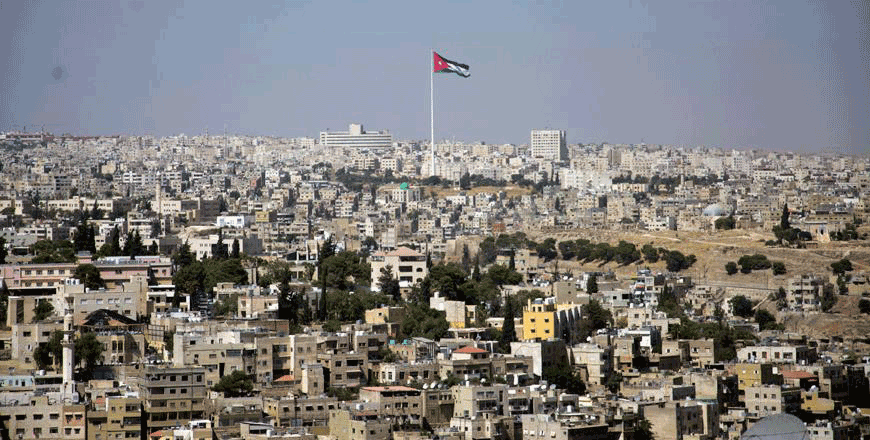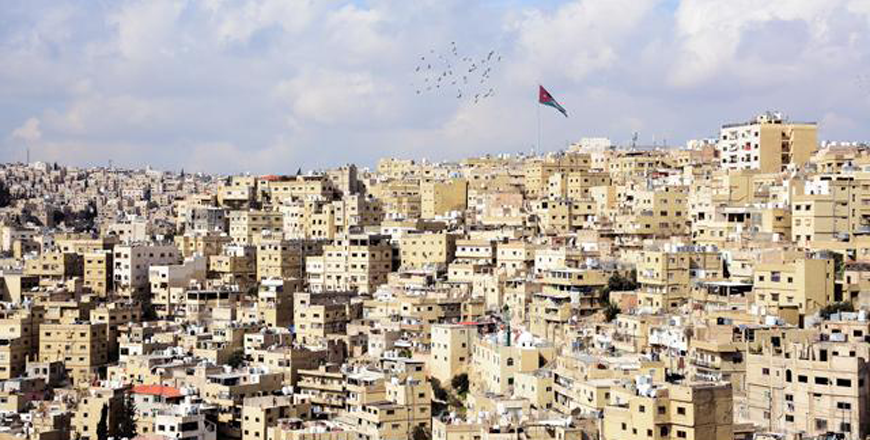You are here
IMF Executive Board completes sixth review under Extended Fund Facility with Jordan
By JT - Jun 30,2023 - Last updated at Jun 30,2023

This file photo taken on January 26, 2022 shows the seal for the International Monetary Fund in Washington, DC (AFP photo)
AMMAN — The Executive Board of the International Monetary Fund (IMF) completed the sixth review of Jordan’s programme supported by the Extended Fund Facility (EFF). The completion of the review will make SDR 24.017 million (about $32 million) immediately available.
This brings total IMF disbursements to Jordan since the start of 2020 to SDR 1,300 million (about $1,735 million), including a purchase of SDR 291.55 million (about $390 million) in May 2020 under the Rapid Financing Instrument. The Executive Board’s decision on the sixth review was taken without a meeting, according to an IMF statement.
Jordan’s four-year extended arrangement, amounting to SDR 926.37 million (about $1,235 million, equivalent to 270 per cent of Jordan’s quota in the IMF), was approved by the IMF’s Board on March 25, 2020 and augmented on June 30, 2021, to SDR 1070.47 million (about $1,430 million, equivalent to 312 per cent of Jordan’s quota in the IMF). On June 30, 2022, the arrangement was once again augmented, to SDR 1,145.954 million (about $1,530 million, equivalent to 334 per cent of Jordan’s quota in the IMF).
The Jordanian authorities have managed to successfully navigate recent external shocks and maintain macro-economic stability in an uncertain and challenging environment. Thanks to the steadfast implementation of prudent fiscal and monetary policies, fiscal consolidation is on track, capital market access has been maintained, and inflation has remained relatively low and is declining, while reserve coverage is strong. Moreover, the economy is projected to continue to grow this year at 2.6 per cent, despite the global headwinds. However, job creation is still weak, and unemployment remains too high, the statement said.
The authorities remain firmly committed to continue with sound macro-economic policies. Fiscal policy is on track to meet this year’s deficit targets and the authorities are committed to continuing a gradual fiscal consolidation in the coming years, to reduce public debt to 80 per cent of GDP by 2028, by further broadening the tax base and improving the efficiency of public spending. Monetary policy has responded quickly to US Federal Reserve policy changes and remains focused on safeguarding the peg and maintaining strong reserve buffers.
Importantly, structural reforms need to continue — and be accelerated — to create a more dynamic private sector that can create sufficient jobs and contribute to higher living standards. This includes further improving the business environment, including by strengthening competition, reducing bureaucracy, increasing labour market flexibility and female labour participation, and enhancing governance and transparency.
It also includes improving the financial viability and efficiency of the electricity and water sectors, not only to reduce the drain on public finances, but most of all, given the threats posed by climate change, to be able to deliver essential services.
Related Articles
AMMAN — International Monetary Fund (IMF) staff and the government have reached a staff level agreement on the second review with Jordan und
AMMAN — The Executive Board of the International Monetary Fund (IMF) on Wednesday completed the fifth review of Jordan’s programme supported
AMMAN — The Executive Board of the International Monetary Fund (IMF) on Monday completed the third review of Jordan’s programme supported by

















